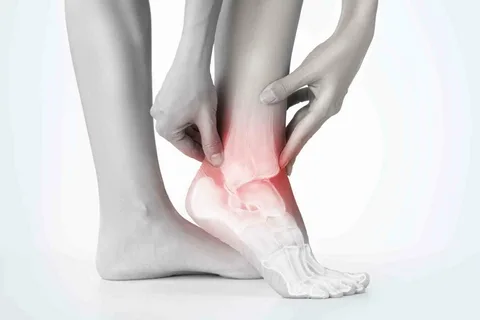Introduction
Ankle Sprains, though common, can be debilitating and impact daily activities. From athletes pushing their limits to individuals navigating uneven terrain, the risk of an ankle sprain lurks around every corner. However, with the right preventive measures, you can significantly reduce the likelihood of experiencing this painful injury. In this comprehensive guide, we’ll delve into the top three strategies for preventing ankle sprains, equipping you with the knowledge to stay active and injury-free.
Understanding Ankle Sprains
Before we delve into prevention strategies, let’s grasp the fundamentals. An ankle sprain occurs when the ligaments supporting the ankle stretch or tear due to sudden twisting or rolling of the foot. Severity varies from mild to severe, depending on the extent of ligament damage.
Risk Factors for Ankle Sprains
Several factors increase the risk of ankle sprains:
- Previous Injury: Prior ankle sprains heighten susceptibility to future ones.
- Muscle Weakness: Insufficient strength in ankle-supporting muscles compromises stability.
- Footwear: Inadequate support or stability in footwear contributes to ankle instability.
- Warm-up Practices: Skipping warm-ups leaves ankle joints and muscles vulnerable.
- Environmental Hazards: Uneven surfaces escalate the risk of ankle sprains.

Top 3 Strategies for Preventing Ankle Sprains
1. Strengthening Exercises
Strengthening ankle-supporting muscles is pivotal in injury prevention. Exercises targeting the calf, peroneal, and tibialis anterior muscles enhance stability, reducing injury risks.
Key Exercises:
- Calf Raises: Strengthen calf muscles by lifting heels off the ground, holding, and lowering.
- Ankle Circles: Improve ankle flexibility and strength with clockwise and counterclockwise rotations.
- Resistance Band Exercises: Utilize bands for dorsiflexion and eversion exercises, fortifying ankle stability.
2. Balance and Proprioception Training
Enhancing balance and proprioception is paramount for preventing sprains. These exercises heighten awareness and reactions, shielding against falls and sudden movements. Explore More About (Fatty Liver and its Solutions)
Effective Balance Exercises:
- Single-Leg Balance: Stand on one leg, progressively challenging balance by closing eyes or using unstable surfaces.
- BOSU Ball Exercises: Perform squats, lunges, or stands on a BOSU ball to challenge stability.
- Wobble Board Drills: Utilize a wobble board for dynamic balance exercises, enhancing control.
3. Proper Footwear and Equipment
Choosing appropriate footwear is critical in ankle injury prevention. Opt for shoes offering support, cushioning, and stability to safeguard against sprains.

Tips for Selecting Footwear:
- Specialty Store Visit: Seek advice from knowledgeable staff to assess gait and recommend suitable shoes.
- Regular Replacement: Replace worn-out shoes promptly to maintain adequate support and stability.
- Consider Orthotics: Custom orthotic inserts can address specific foot concerns or imbalances, providing additional support.
Preventive Measures
| Preventive Measures | Description | Effectiveness |
|---|---|---|
| Strengthening Exercises | Target specific muscles to enhance stability and support. | High |
| Balance and Proprioception | Improve awareness of body position and reactions to prevent falls and sudden movements. | Moderate to High |
| Proper Footwear and Equipment | Select shoes with adequate support and stability to reduce the risk of ankle sprains. | Moderate to High |
Conclusion
Ankle sprains are not merely inconveniences; they can disrupt daily life and hinder physical activities. By incorporating the top three prevention strategies outlined in this guide—strengthening exercises, balance training, and proper footwear—you can significantly diminish the risk of ankle sprains. Consistency and dedication to these measures are paramount for maintaining pain-free mobility and activity levels.
Remember, prevention is the key to avoiding the pain, inconvenience, and potential long-term consequences associated with ankle sprains. Invest in your ankle health now to enjoy a lifetime of uninhibited movement and activity.












